Addressing the Converging Risks of Climate, Insecurity, and Migration in Central America
Submit a question
The idea of climate change as a “threat multiplier” has been gaining steam since it was first proposed roughly 15 years ago. This framing acknowledges that climate can interact with existing political, social, and demographic conditions to heighten communities’ security risks—which in turn suggests that problem-solving in the face of these risks must be interdisciplinary.
“We need analyses and decision-making processes that allow us to better understand dynamic interactions between climate, insecurity, and migration,” said Lauren Risi, Director of the Wilson Center Environmental Change and Security Program at a recent Wilson Center event on the converging risks of climate, insecurity, and migration in Central America.
The Wilson Center launched a partnership with NOAA and the University Corporation for Atmospheric Research (UCAR) in 2017 to do just that. As part of the partnership, ECSP has worked on a series of case studies with NOAA and UCAR to develop a framework for better anticipating and mitigating the security risks exacerbated by climate change. The new framework emphasizes physical and natural systems vulnerabilities, political and social stability, transboundary and regional dynamics, and scales of decision-making.
Most recently, the partnership held a series of workshops to apply the framework to Central America, culminating in a new report, “Addressing Climate Security Risks in Central America.” Drawing from this report and other recent research, experts at the Wilson Center event spoke about the challenges and opportunities at the intersection of climate, security, and migration in Central America.
How Events Become Disasters in Central America
Central America is one of the most climate-vulnerable areas in the world, said Risi, but its multi-hazard risk information systems and climate services remain underdeveloped.
Martin McLaughlin, Acting Deputy Assistant Administrator at USAID’s Bureau for Latin America and the Caribbean, said that 61 percent of Latin American and Caribbean countries rank poorly in their level of adaptation readiness, according to the Notre Dame Global Adaptation Initiative’s climate change vulnerability index.
Against this backdrop, climate hazards like intensifying storms are helping propel migration. Over 1 million people in the region were displaced in the wake of two 2020 hurricanes (Eta and Iota) alone. Yet climate events do not in and of themselves drive migration. Rather, they interact with a host of economic, political, and social dimensions—including existing insecurity within nations.
“People move internally and internationally in search of employment,” explained Aracely Martínez Rodas, Director of the Master in Development at the Universidad del Valle de Guatemala. “[They move] to flee from direct violence caused by gangs, criminal organizations, and extractive projects.” She added that some are fleeing gender-based violence. She also pointed to the larger structural force underlying migration motives. The region’s adoption of neoliberal policies in the 1990s, for instance, diminished states’ ability to provide basic services and fostered racism and exclusion, especially of women and Indigenous people.
In light of this reality, Nahuel Arenas Garcia, Deputy Chief of UNDRR, warned against focusing on hazard events without understanding why such events can threaten security and spur migration—i.e. what social and political contexts form the basis of environmental disasters: “We should not keep on focusing on the events,” he explained, “but rather we should focus on the decisions that result in disasters, the decisions that put people in situations of vulnerability … Disasters are not ‘natural.’”
Climate hazards like hurricanes only become “disasters” when a community’s capacity to respond is overwhelmed, noted Roger Pulwarty, Senior Scientist at NOAA.
The Outsized Toll on Women and Girls
As these root causes of migration from Central America garner greater attention, the Population Institute is investigating how gender equity, population dynamics, and reproductive health and rights fit into the picture. The Institute published a report in late 2023, “Invisible Threads: Addressing the Root Causes of Migration from Guatemala by Investing in Women and Girls,” that explores these often-sidelined dimensions of mobility and articulates how they could be incorporated into (and help strengthen) efforts to address the root causes of migration.
“The health and well-being of women and girls are intimately connected to many of the issues that are commonly discussed as root causes of migration,” said Kathleen Mogelgaard, President and CEO of the Population Institute, which co-sponsored the event. “Climate change impacts food insecurity, economic insecurity, crime and violence, and demographic pressures. The lives of women and girls are deeply interwoven in all these issues.”
Although rural and Indigenous women face higher risks of rape and trafficking while migrating, for instance, Martínez Rodas said that they are still drawn to the U.S. by the hope of obtaining better working conditions and achieving enough economic autonomy to feed their children and take care of relatives. She added that low municipal investment in youth also means that young women and girls experience particularly strong migration pressures.
Indeed, girls as young as 12 sometimes leave their communities looking for education and brighter prospects, noted Angel del Valle, Country Representative and Senior Research Officer at the Population Council’s Guatemala Office.
Over the past 20 years, the Population Council’s Abriendo Opportunidades Program in Guatemala has helped organize weekly safe spaces for Indigenous girls to discuss various topics relevant to their lives. In addition to fostering social support, the program is a chance for these girls to develop life skills and gain leadership experience. Martínez Rodas noted that Indigenous girls in Guatemala have largely been demobilized and disconnected from decision-making bodies in cities and at the national level. The program has not only improved Abriendo girls’ connections to secondary education but has also spurred investment in Indigenous knowledge and has led to a greater understanding of how regional food insecurity can be addressed.
Acting on Interdependence
As the Abriendo Opportunidades program exemplifies, solutions to these challenges must reflect their complexity and interdependence. “The links between climate, poverty, violence, and hunger create the impacts that push people to move,” said Arenas Garcia, “but what does this mean in terms of decision-making and financial priorities?” He suggested that the most significant transformation needed to achieve the 2030 Agenda for Sustainable Development is adopting a systemic approach that recognizes the interdependence of these issues.
Arenas Garcia added that while the pandemic has moved the needle somewhat by helping to emphasize the importance of transdisciplinary and multi-scale coordination, more progress must be made. “We need to move from disaster risk reduction as a sector to disaster risk reduction as an outcome of all sectors,” he observed. “Anticipating, preventing, and addressing risk must be part of every decision and every policy.”
In this vein, McLaughlin cited a new USAID program meant to address the convergence of climate and migration in urban areas. The agency will provide $1 million across Latin America and the Caribbean to support the development of city-level plans that address the regulatory, legislative, budget, and planning bottlenecks currently limiting climate adaptation and climate finance. And prioritizing local knowledge is a key part of the approach.
“Local farmers have a tremendous amount of knowledge,” McLaughlin noted. “Farmers have expertise with different crops. And they have intimate knowledge of local preferences for varieties of sources of protein sources or cereals and carbohydrates. So localization is really important.”
While the climate crisis continues to pose urgent risks to human security and international stability, Risi observed that our collective response also presents an opportunity. Tackling climate change is a chance to build overall resilience, strengthen institutional capacity to address underlying sources of insecurity, and invest in coordination between government and civil society to adapt to change.
Written by Claire Doyle, edited by Richard Byrne.
For more information, read:
- ECSP's latest report "Addressing Climate Security Risks in Central America"
- Population Institute's 2022 report, "Invisible Threads: Addressing the Root Causes of Migration from Guatemala by Investing in Women and Girls"
Speakers
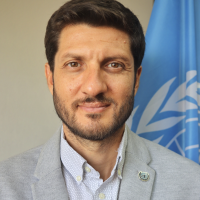
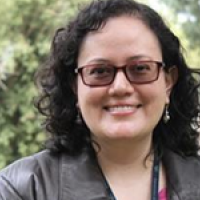
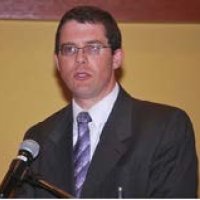
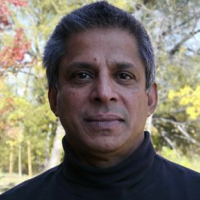

Introduction
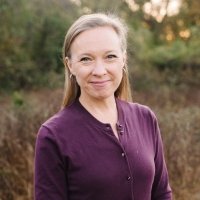
Moderator
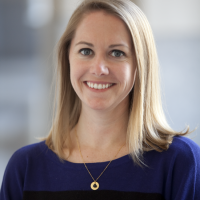
Hosted By

Environmental Change and Security Program
The Environmental Change and Security Program (ECSP) explores the connections between environmental change, health, and population dynamics and their links to conflict, human insecurity, and foreign policy. Read more


Latin America Program
The Wilson Center’s prestigious Latin America Program provides non-partisan expertise to a broad community of decision makers in the United States and Latin America on critical policy issues facing the Hemisphere. The Program provides insightful and actionable research for policymakers, private sector leaders, journalists, and public intellectuals in the United States and Latin America. To bridge the gap between scholarship and policy action, it fosters new inquiry, sponsors high-level public and private meetings among multiple stakeholders, and explores policy options to improve outcomes for citizens throughout the Americas. Drawing on the Wilson Center’s strength as the nation’s key non-partisan policy forum, the Program serves as a trusted source of analysis and a vital point of contact between the worlds of scholarship and action. Read more


Maternal Health Initiative
Housed within the Wilson Center's Environmental Change and Security Program, the Maternal Health Initiative (MHI) leads the Wilson Center’s work on maternal health, global health equity, and gender equality. Read more


Mexico Institute
The Mexico Institute seeks to improve understanding, communication, and cooperation between Mexico and the United States by promoting original research, encouraging public discussion, and proposing policy options for enhancing the bilateral relationship. A binational Advisory Board, chaired by Luis Téllez and Earl Anthony Wayne, oversees the work of the Mexico Institute. Read more


Refugee and Forced Displacement Initiative
The Refugee and Forced Displacement Initiative (RAFDI) provides evidence-based analyses that translate research findings into practice and policy impact. Established in 2022 as a response to an ever-increasing number of people forcibly displaced from their homes by protracted conflicts and persecution, RAFDI aims to expand the space for new perspectives, constructive dialogue and sustainable solutions to inform policies that will improve the future for the displaced people. Read more



